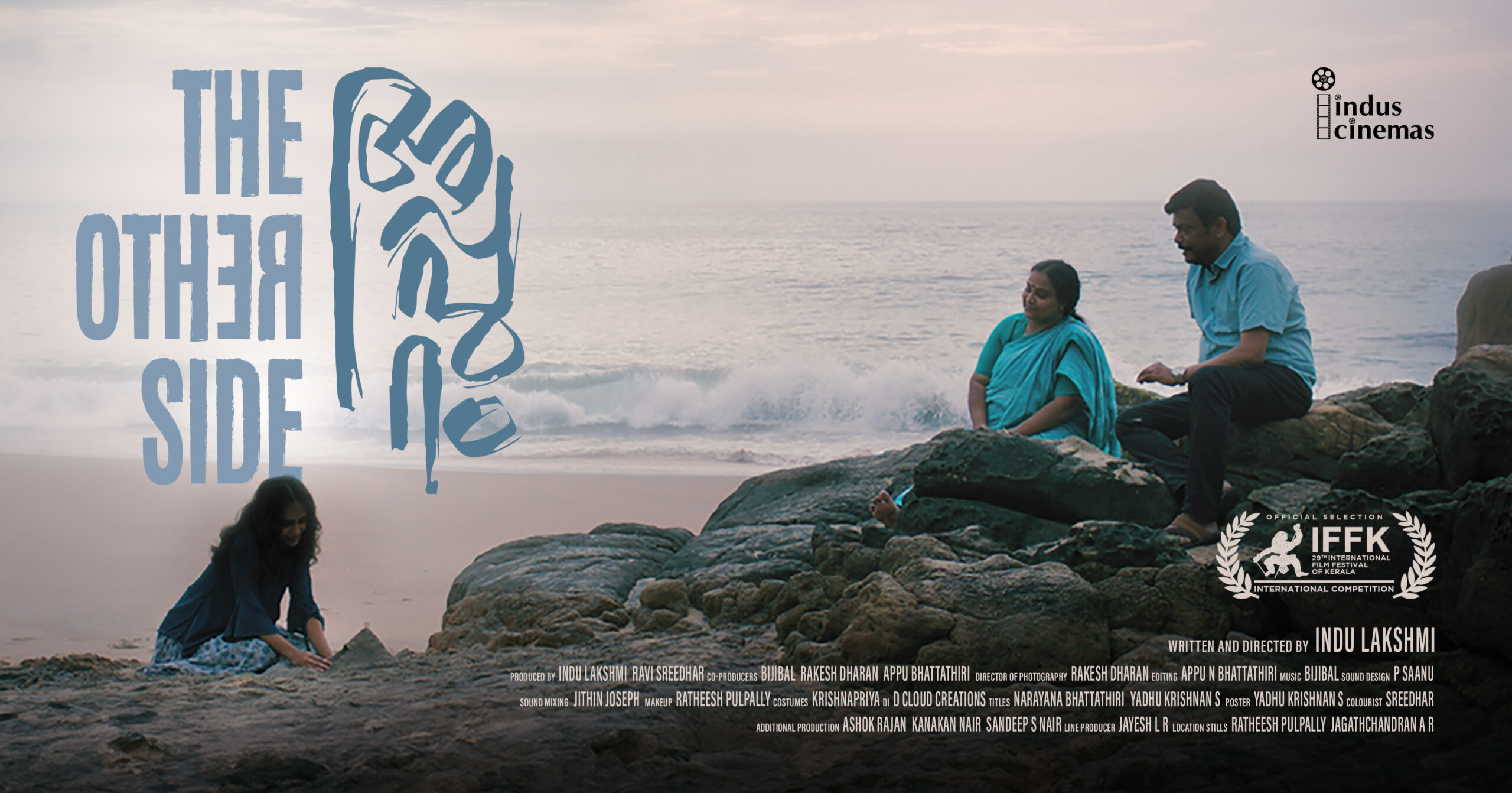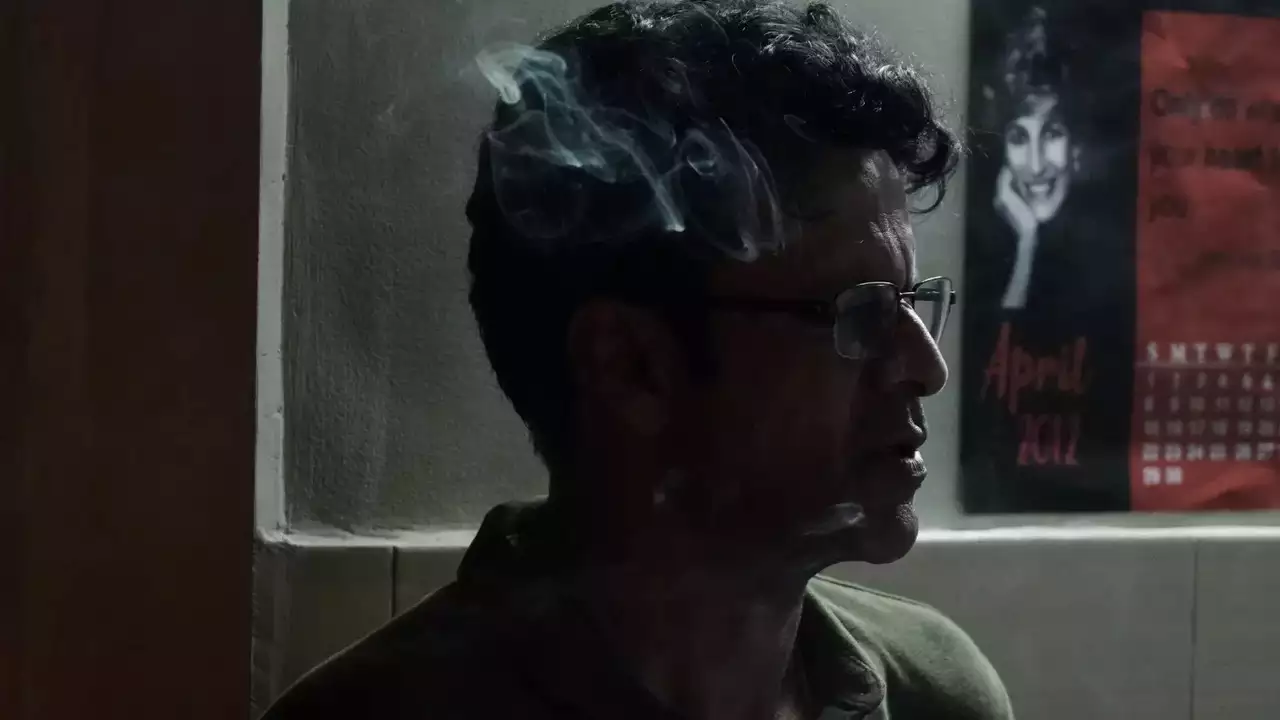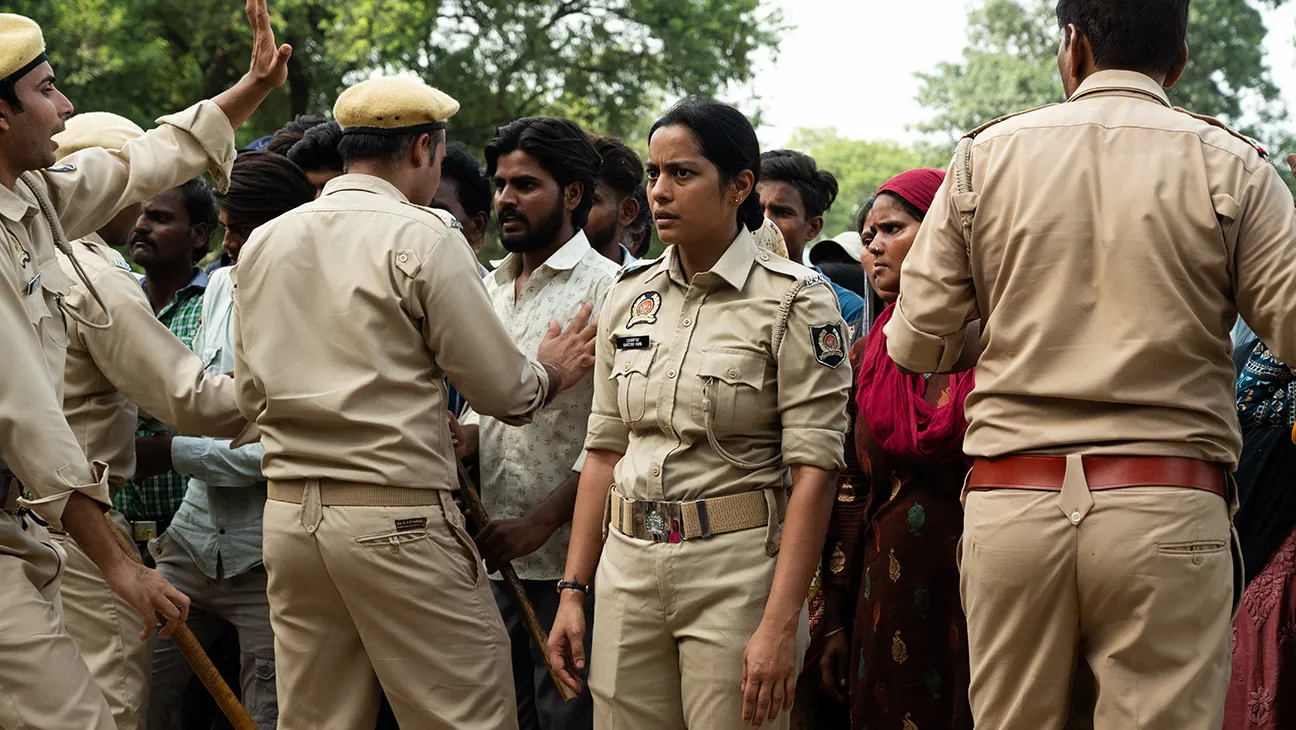Indu Lakshmi’s Appuram narrates the tale of a young girl navigating an emotional rollercoaster as she copes with a psychologically unstable mother. On one hand, it is a film about the protagonist’s grueling effort to create a comfortable space for her mother at home while simultaneously battling the prejudices of a patriarchal society. Yet beneath its surface, the film transcends themes of mental illness, and agonizing religious customs, to weave these elements into a greater purpose: a realistic drama whose strength lies in its significant insight of character study. It is essentially a thoughtful drama about suffering, salvation, and the dangerously blurred line between belief and madness, exploring the brave encounters that prepare us to view the world unflinchingly. It is also a work of visceral emotions and gentle notions, a portrait of faith in all its power, strangeness, and cruelty. The story delves into the peculiarities of human nature and experience that account for the existence, perhaps even the inevitability, of moth-eaten customs and religious beliefs. In doing so, the film endeavors to depict the intangible within an observation that is both deeply personal and universally resonant. The film is imbued with complex truths, not asserted outright but revealed through a nuanced accumulation of details. Its performances eschew simple psychological trajectories and effectively convey the wayward crosscurrents of human emotion that are rich in depth and ambiguity.
Janaki (Anagha Maya Menon) is a teenage girl living with her mother, Chitra (Mini IG), and her father, Venu (Jagadeesh), in a city in Kerala. Chitra is struggling with severe mental instability and has attempted suicide multiple times. Venu and Janaki do their utmost to prevent any tragic incident that could result in Chitra’s death. However, Chitra often succumbs to psychological episodes that drive her to try to end her life, making her a constant source of concern for both her husband and daughter. Frequent hospital visits following Chitra’s suicide attempts have become a kind of ritual for the family. Discussions with doctors about Chitra’s fragile mental state are a regular occurrence. Even when Chitra is merely dozing off, Janaki is gripped by anxiety, fearing that her mother might have passed away. As Janaki spends her days in constant dread, the unexpected finally happens. Following this devastating loss, Janaki finds herself caught in the grip of her extended family’s rigid customs and their wrath. A new battle begins as Janaki is forced to make radical decisions to honour what she made to her mother. The rest of the film follows Janaki’s journey as she fights against societal expectations and personal fears to carve out a path of dignity and fulfilment, both for her mother’s memory and her responsibility as a dutiful daughter.
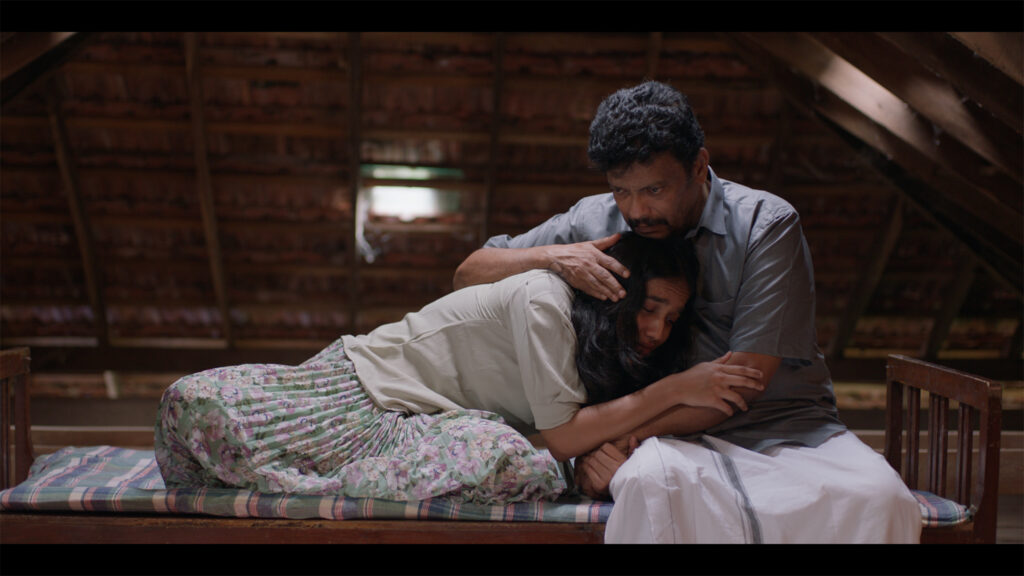
On the surface, Appuram is a transparent and heartfelt tale of a daughter’s relentless attempt to save her mother from suicidal tendencies. However, the film carries an emotional gravitas and thematic complexity that elevates it far beyond its premise. Watching this film is not always a pleasant experience; several scenes are excruciating in their raw portrayal of tormented souls. Yet, the filmmaker’s quiet and exacting humaneness imbues even the most harrowing moments with an intimation of grace. The first half of the film is structured as a series of vignettes, each offering a snapshot of the turmoil Janaki endures. It begins with a heady opening that sets a somber expectation for everything to follow. As the story progresses, it seamlessly integrates clues about a hidden trauma, gradually drawing closer to the core of an unexplained malaise. This isn’t merely a film about following a broken girl pushed to the edges of despair. Instead, it is about how the unfolding narrative unveils an individual’s deepest traumas, providing an insightful examination of the springiness and fragility of the human spirit.
Lakshmi’s naturalistic style allows the film to achieve a striking emotional resonance, unfolding with delicate perception and imbuing each scene with intense sentimentality, forcing the viewer to engage in their emotions as a helpless observer. Most of the scenes within the film are purposeful with deeper meanings emerging through subtle details as we delve into them. Moments like Janaki checking her mother’s breath every time she is asleep, Chitra attempting to slash herself with a knife while chopping vegetables, or Janaki overhearing snippets about the outside world while in the attic exemplify this layered storytelling. Even Janaki rehearsing the lines “to be or not to be”, the famous soliloquy from William Shakespeare’s play Hamlet, for a school play draws a stark parallel to the turbulent state of mind her experiences that she goes through in the film. These moments are carefully structured with heartbreaking emotional displays, with every scene attentively crafted to ensure no moment is wasted. Within its realistic narrative style, the film ensures that every betrayal of true emotion stands out vividly, lingering on intense insightful moments with considerate detail, and amplifying the well-rounded focus of each scene.
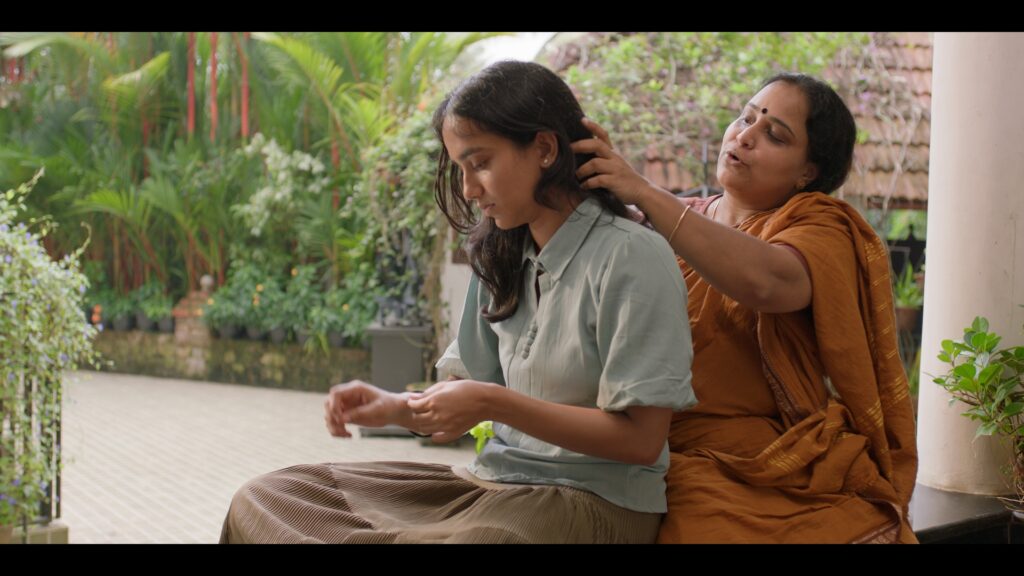
The film also uses Janaki’s menstruation during the mourning phase at her grandparent’s house as a symbol of the challenges female autonomy faces when it is restricted. The society that Chitra came from was and will always be governed by traditional customs and a patriarchal system that confines women to ideologies they believe are correct. Thus, the final act Janaki takes in the climax of the film serves as a direct assault on these restrictive beliefs that have eroded both her sense of self and her mother’s. It becomes a form of retaliation against her struggles to make her voice heard and represents the broader challenges women face in a society that dismisses their views, ambitions, and desires. The strength to take this defiant step comes from Janaki’s determination to fulfil her mother’s wishes. In essence, the filmmaker uses societal externalities to underscore the inner torments of the protagonist, presenting them with painful dramatic overtones. Thus, Janaki’s grandparents’ house becomes a microcosm of a society where traditional values and patriarchal norms confine women, shaping their roles and expectations within both the family and society at large.
Rakesh Dharan’s cinematography captures the pain and inner turmoil of the characters with a precision that is both striking and subtle. Whether in her parents’ house in the city or confined in the attic of her grandparents’ house, Dharan frames Janaki in her isolation, emphasizing her emotional distance. The exterior shots at the end of the film become a strong reflection of the character’s inner conflict, offering a powerful visual contrast to the intimacy of the confined spaces she inhabits throughout the story. The editing by Appu N Bhattathiri also helps in maintaining the film’s tight emotional focus, seamlessly weaving together moments of tension and introspection, allowing the stirring weight of each scene to resonate deeply with the viewer. Even a single extra second spent holding onto a frame adds substantial strength. The sound design by P. Saanu further enhances the atmosphere, carefully balancing silence and sound to heighten the emotional intensity and underscore the protagonist’s internal struggle. The aural space relies mostly on natural sounds—the gossip of people, the clatter of rituals being performed—to intrude upon the scene, further grounding the viewer in a stark sense of realism.
Anagha Maya Menon, as Janaki, brings the troubled daughter to life on screen. She imbues the character with a quiet maturity that is both resilient and subtly rebellious in her ways. Menon becomes the anchor that keeps us invested in the story, as we follow Janaki’s journey with unwavering faith in her grit and transformation. Jagadeesh, as Venu, portrays a man caught between the struggles of his daughter and the unsettled behaviour of his wife. He captures the emotional turmoil of a father trying to balance his responsibilities and the overwhelming challenges of his family’s fragile state. Mini IG, as Chitra, portrays a woman who desperately wants her life’s struggles to end, allowing us to empathize deeply with her plight. She brings a raw insight to the character, making her internal turmoil both palpable and heartbreaking.
Tragic dramas often portray suffering as an ordeal that embodies the finest aspects of humanity. Much of this suffering unfolds in the chaotic, unpolished corners of human experience, where life spirals out of control. In these moments, the undaunted spirit of survival emerges, and Appuram captures this unvarnished reality with honesty.
At the 29th International Film Festival of Kerala (IFFK), Appuram was screened in the International Competition section and won two awards: FSSI V K Mohanan Endowment for best debut director from India for Indu Lakshmi and Special Jury Mention for Anagha Ravi’s performance.

